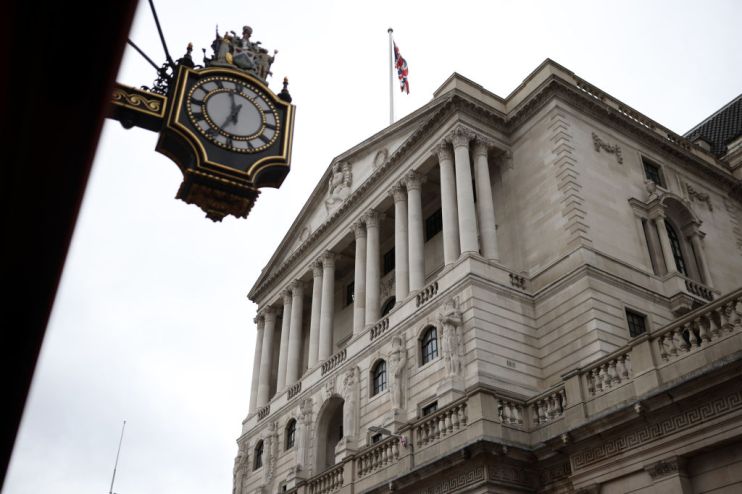City braces for BoE rate hike and mini-budget

The City is bracing for a bumper week of economic data and policy announcements in a trading week shortened by the UK bank holiday for The Queen’s funeral.
London’s premier FTSE 100 index posted mixed performance last week, initially jumping higher before closing 1.56 per cent lower at 7,236.68 points.
Its mid-cap domestically-focused counterpart, the FTSE 250, which is more aligned with the health of the UK economy, shed just over two per cent to finish below the 19,000 point mark.
FTSE 100 finished last week lower

The City will be paying closest attention to the Bank of England’s interest rate announcement on Thursday.
Markets are split in their judgement on how steep the Bank will lift borrowing costs.
Traders are pencilling in an outside chance governor Andrew Bailey and the rest of the monetary policy committee (MPC) will hike rates 75 basis points, which would be the steepest move in the Bank’s 25 years of independence.
”A 75 basis point hike would show that the Bank is actively looking to offset any of the inflationary impact of the Government’s new fiscal policy now rather than later, shoring up its inflation fighting credibility,” Sanjay Raja, senior economist at Deutsche Bank, said.
A sharp fall in the pound driven by investors piling into the US dollar to capitalise on the Federal Reserve’s rate rises adds to pressure on the Bank to launch an unprecedented hike, Raja added.
He thinks the most likely outcome is a 50 basis point rise, taking rates to 2.25 per cent.
New chancellor Kwasi Kwarteng on Friday will set out more details on the government’s plans to freeze household energy bills at £2,500 for two years at a cost of around £150bn.
He is also expected to reverse the 1.25 percentage point national insurance rise and six percentage point corporation tax hike, alongside other tax cutting measures.
Economists have warned additional government spending to cushion the cost of living crisis may keep inflation, already running at around a 40-year high of 9.9 per cent, higher for longer by stimulating spending.
New public finances figures out on Tuesday are likely to show the government borrowed more than £7bn in August.
GfK’s long-running consumer confidence survey, released on Friday, may show a slight improvement in household optimism, at a record low, driven by the government finally launching an energy bill support package.